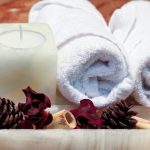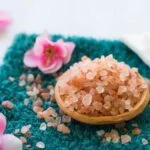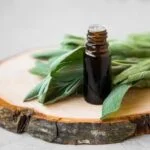Aromatherapy diffusers have gained popularity in recent years for their ability to promote relaxation and improve overall well-being. But what exactly does an aromatherapy diffuser do?
In simple terms, an aromatherapy diffuser is a device that disperses essential oils into the air, allowing you to enjoy the benefits of aromatherapy in your home or workspace. With the growing stressors and demands of daily life, many individuals are turning to alternative methods like aromatherapy to unwind and find moments of tranquility.
Aromatherapy has long been known for its therapeutic effects on the mind and body. By using essential oils extracted from plants, aromatherapy can help reduce stress levels, promote better sleep quality, and enhance mood and mental clarity.
Aromatherapy diffusers play a crucial role in this process by effectively releasing these beneficial essential oils into the air, allowing you to experience their healing properties through inhalation. Whether you’re looking to create a calming ambiance at home or boost your productivity at work, incorporating an aromatherapy diffuser into your routine can make a significant difference in your overall well-being.
There are various types of aromatherapy diffusers available on the market, each with its unique mechanisms and benefits. From ultrasonic diffusers that use water to disperse essential oils as fine mist to nebulizing diffusers that break down oils into particles without heat or water, there’s a diffuser option for every preference.
As we delve deeper into how these devices work and explore the benefits of using them, it becomes evident that incorporating an aromatherapy diffuser into your daily routine can be a game-changer in helping you achieve a more balanced and relaxed lifestyle.
How Does an Aromatherapy Diffuser Work?
Aromatherapy diffusers are small devices that are used to disperse essential oils into the air, allowing their therapeutic properties to be inhaled and absorbed by the body. These diffusers work by breaking down the essential oils into tiny molecules and circulating them throughout a room, creating a pleasant aroma and delivering numerous health benefits. The process of diffusion also helps to purify the air by eliminating harmful particles through antimicrobial properties of certain essential oils.
There are several types of aromatherapy diffusers available on the market, each with its own unique way of dispersing essential oils. Some popular options include:
- Ultrasonic diffusers: These diffusers use water and ultrasonic vibrations to create a fine mist that carries the essential oil particles into the air.
- Nebulizing diffusers: These diffusers use pressurized air to break down essential oils into tiny particles without diluting them in water, providing a more potent aroma.
- Evaporative diffusers: These diffusers use a fan or heat source to evaporate essential oils directly from a pad or tray, releasing their scent into the air.
The main function of an aromatherapy diffuser is to provide a convenient and efficient way to enjoy the benefits of essential oils. By using a diffuser regularly, individuals can experience stress relief, improved sleep quality, boosted mood, mental clarity, and even respiratory health benefits. Additionally, aromatherapy diffusion is not only beneficial for physical well-being but can also contribute to creating a calm and relaxing environment in homes or workplaces.
Benefits of Using an Aromatherapy Diffuser
Aromatherapy diffusers play a crucial role in enhancing relaxation and promoting overall well-being. These devices are specifically designed to disperse essential oils into the air, creating a calming and soothing atmosphere. So, what does an aromatherapy diffuser do exactly? It helps in releasing the natural fragrance and therapeutic properties of essential oils, allowing individuals to breathe in the benefits for their mental and physical health.
One of the primary benefits of using an aromatherapy diffuser is stress relief and relaxation. Essential oils like lavender or chamomile can help calm the mind, reduce anxiety, and promote a sense of peace. Furthermore, the gentle diffusion of these oils can create a tranquil environment at home or in the workplace, aiding in stress reduction and mental rejuvenation. Additionally, when used before bedtime, certain essential oils can improve sleep quality by creating a conducive atmosphere for restful sleep.
Another advantage of incorporating an aromatherapy diffuser into your daily routine is the potential improvement in mood and mental clarity. Essential oils such as lemon or peppermint have uplifting properties that can boost energy levels, enhance focus, and uplift spirits. The inhalation of these invigorating scents can help combat feelings of fatigue or brain fog, ultimately improving cognitive function and productivity throughout the day.
| Benefits | Details |
|---|---|
| Stress Relief | Aromatherapy diffusers help in reducing anxiety and promoting relaxation. |
| Improved Sleep Quality | Essential oils aid in creating a peaceful environment for better sleep. |
| Mood Enhancement | Certain scents uplift mood, increase focus, and provide mental clarity. |
Popular Essential Oils for Aromatherapy Diffusion
When it comes to using an aromatherapy diffuser, the choice of essential oils plays a crucial role in determining the overall experience and benefits derived from the practice. Here are some popular essential oils that are commonly used in aromatherapy diffusion:
- Lavender: Known for its calming and relaxing properties, lavender essential oil is a go-to option for promoting restful sleep and reducing stress and anxiety.
- Peppermint: If you’re looking to boost your energy levels and enhance focus and concentration, peppermint essential oil is a refreshing choice that can invigorate both the mind and body.
- Eucalyptus: For those seeking respiratory support and relief from congestion, eucalyptus essential oil is highly effective in promoting clear breathing and overall respiratory health.
Each of these essential oils offers unique benefits that cater to different needs, whether it be relaxation, mental clarity, or physical wellness. By incorporating these oils into your aromatherapy diffusion routine, you can create a customized experience that meets your specific goals.
In addition to their therapeutic properties, these popular essential oils also add a pleasant aroma to any space where they are diffused. Whether you prefer floral notes like lavender, invigorating scents like peppermint, or fresh undertones like eucalyptus, experimenting with different oils can help you discover what works best for you in terms of both fragrance and wellness benefits.
By understanding the characteristics of each essential oil and how they interact with your senses and body, you can make informed decisions when choosing which ones to use in your aromatherapy diffuser. The versatility of essential oils allows you to blend them together or use them individually to create a holistic aromatherapy experience that promotes well-being on multiple levels.
Types of Aromatherapy Diffusers
Ultrasonic Diffusers
One of the most popular types of aromatherapy diffusers is the ultrasonic diffuser. These diffusers work by using water and vibrations to disperse essential oils into the air as a fine mist.
Ultrasonic diffusers are known for their ability to also humidify the air, making them great for adding moisture to indoor environments which can be beneficial for dry skin or respiratory issues. Additionally, these diffusers often come with color-changing LED lights, providing a soothing ambiance along with the aromatherapy benefits.
Nebulizing Diffusers
Nebulizing diffusers are another type of aromatherapy diffuser that does not require water. They work by dispersing pure essential oil directly into the air without dilution. Nebulizing diffusers are considered more potent in aroma diffusion compared to other types, as they do not alter the chemical composition of the essential oils being used. This makes them ideal for individuals looking for a strong and immediate scent impact. However, they may use up essential oils more quickly than other diffuser types.
Evaporative Diffusers
Evaporative diffusers function by allowing essential oils to evaporate and disperse into the air. These diffusers typically have a pad or filter where you apply the essential oils, and then a fan blows air over it to help with evaporation. The key benefit of evaporative diffusers is that they are usually very simple to use and cost-effective.
However, since they rely on airflow to diffuse the aroma, they may not be as effective in larger spaces. Despite this limitation, evaporative diffusers are still a practical choice for beginners or those who prefer a more straightforward approach to aromatherapy diffusion.
How to Use an Aromatherapy Diffuser Effectively
Tips for Choosing the Right Essential Oils
When it comes to using an aromatherapy diffuser effectively, selecting the right essential oils plays a crucial role. Consider your desired outcome – whether you want to relax, energize, or improve focus. For relaxation and better sleep quality, opt for lavender essential oil.
Peppermint essential oil is excellent for boosting energy and mental clarity. If you are looking to support respiratory health, eucalyptus essential oil is a great choice. Experiment with different combinations of essential oils to find what works best for you.
Instructions for Cleaning and Maintenance
To ensure that your aromatherapy diffuser continues to work effectively, regular cleaning and maintenance are essential. Follow the manufacturer’s instructions on how to clean your specific type of diffuser.
Typically, this involves emptying any remaining water and oil after each use, wiping down the inside of the tank with a cloth, and running a cleaning cycle with vinegar or rubbing alcohol every few uses. Regular maintenance will not only extend the life of your diffuser but also prevent any build-up that may affect its performance.
Creating the Ideal Environment
In addition to choosing the right essential oils and maintaining your aromatherapy diffuser properly, creating the ideal environment can enhance your overall experience. Place your diffuser in a central location in the room where you spend most of your time for maximum benefits. Consider factors such as room size, airflow, and humidity levels when using the diffuser. By optimizing these conditions, you can make the most out of your aromatherapy sessions and enjoy all the benefits that come with it.
Common Misconceptions About Aromatherapy Diffusers
A common misconception about aromatherapy diffusers is that they are simply air fresheners that emit pleasant scents. However, the truth is that these devices do much more than just make a room smell nice.
Aromatherapy diffusers are specifically designed to disperse essential oils into the air, allowing for the therapeutic benefits of these natural plant extracts to be inhaled and absorbed by the body. By using an aromatherapy diffuser, you can experience the full range of benefits that essential oils have to offer.
One myth surrounding aromatherapy diffusers is that they are only useful for relaxation purposes. While it is true that aromatherapy can promote relaxation and stress relief, the benefits of using a diffuser extend far beyond just that. Essential oils like peppermint can boost energy levels and enhance focus, while eucalyptus oil can support respiratory health. Different essential oils have unique properties that can address various issues, making aromatherapy diffusers versatile tools for overall well-being.
Safety concerns are another area where misconceptions about aromatherapy diffusers may arise. It’s important to note that when used properly and following manufacturer instructions, aromatherapy diffusers are safe to use for most people.
However, some individuals may be sensitive to certain essential oils or have specific health conditions that could be affected by aromatherapy. As with any wellness practice, it’s always recommended to consult with a healthcare professional before incorporating aromatherapy into your routine if you have any concerns about its safety or compatibility with your individual needs.
| Benefits | Examples |
|---|---|
| Stress relief and relaxation | Lavender essential oil |
| Improved sleep quality | Chamomile essential oil |
| Boosted mood and mental clarity | Citrus essential oils (e.g. lemon) |
Conclusion
In conclusion, aromatherapy diffusers are valuable tools that play a significant role in enhancing relaxation and promoting overall well-being. By understanding how these devices work to disperse essential oils into the air, individuals can experience the benefits of stress relief, improved sleep quality, and boosted mood and mental clarity. The different types of diffusers available cater to various preferences and needs, making it easier for users to find the right fit for their lifestyle.
When considering what does aromatherapy diffuser do, it is essential to recognize the popular essential oils commonly used for diffusion, such as lavender for relaxation, peppermint for energy, and eucalyptus for respiratory health. These oils not only contribute to physical wellness but also aid in creating a soothing ambiance in any space.
Overall, incorporating aromatherapy through the use of diffusers can have a positive impact on one’s daily routine and self-care practices. Whether seeking stress relief after a long day or aiming to improve sleep quality, the benefits of using an aromatherapy diffuser are undeniable. So why not give it a try and experience the transformative effects firsthand?
Frequently Asked Questions
What Is the Benefit of a Diffuser?
The benefit of using a diffuser is that it helps to disperse essential oils into the air, allowing you to enjoy their aromatherapeutic benefits. Diffusers can create a calming and relaxing atmosphere in your home or workspace.
What Is the Downside of Diffusers?
One downside of using diffusers is that some people may be sensitive to the strong scents produced by essential oils. Overuse or exposure to certain oils can potentially trigger allergic reactions or headaches in some individuals.
Does Diffusing Essential Oils Do Anything?
Diffusing essential oils can have various positive effects on the mind and body. For example, certain oils like lavender can promote relaxation and improve sleep quality, while peppermint oil can help with mental clarity and focus. The inhalation of these oils can also have mood-boosting properties and even provide relief from respiratory issues like congestion.

Are you looking for a natural way to improve your health and wellbeing?
If so, aromatherapy may be the answer for you.





